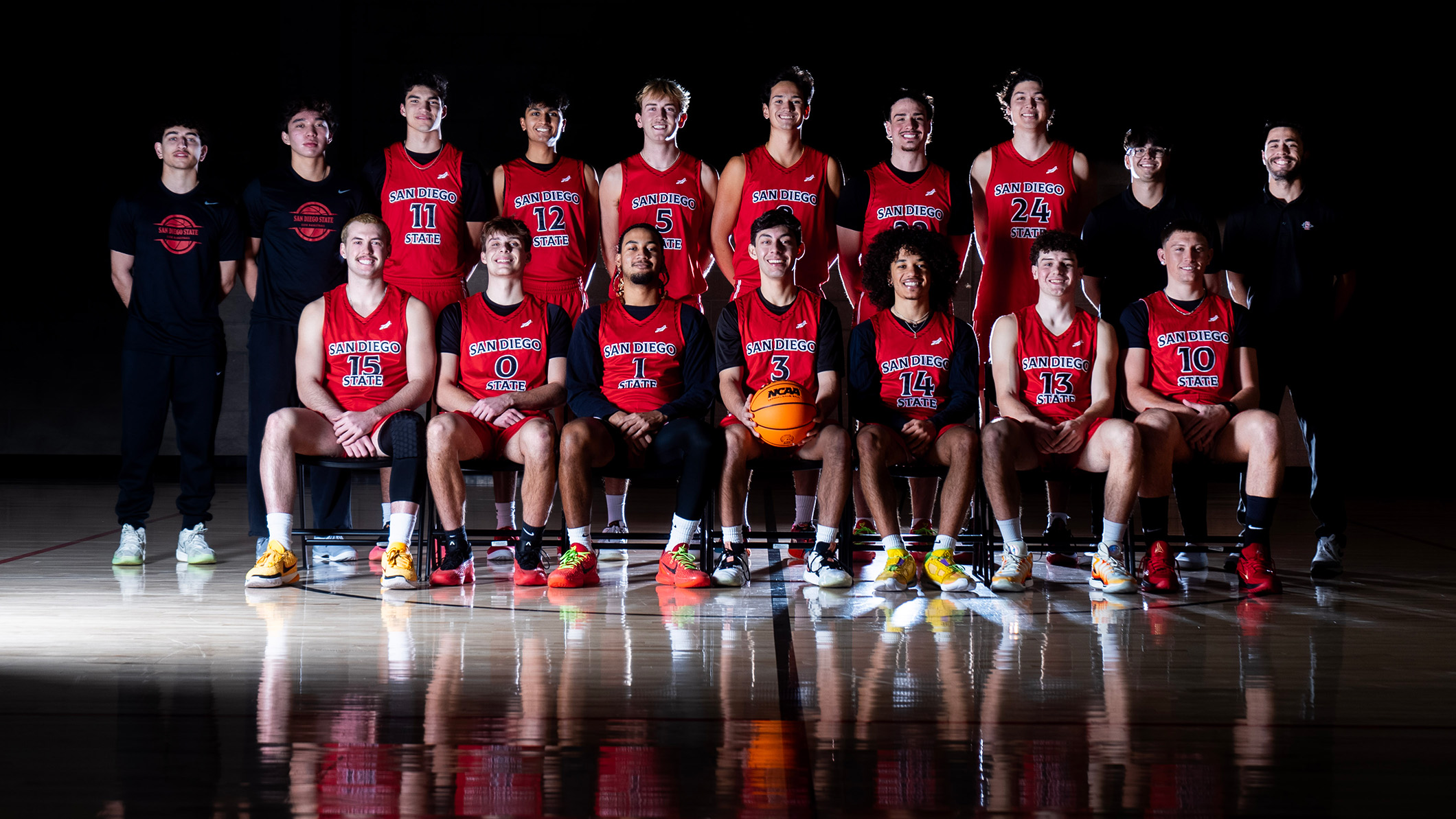A Hospitality Visionary
Carl Winston, director of SDSU's L. Robert Payne School of Hospitality and Tourism Management program, is dedicated to helping students reach their highest potential.

If you've visited the L. Robert Payne School of Hospitality and Tourism Management at San Diego State University, you know that the students in the program are going places — literally and figuratively.
The program — which boasts a 99 percent post-graduation job placement rate — features challenging curriculum, both practical and visionary, and ensures students graduate with a strong business foundation and a real understanding of the complexities and demands of the hospitality industry.
The success of the school can be attributed to the visions of its director, Carl Winston. Under Winston's 13-year leadership, the school has grown to be a well-respected program across the globe.
“I’m very passionate about the opportunities the hospitality industry offers people," Winston said. "You can start at the bottom and work your way to the top.”
The road to achievement
Winston didn't discover his love for the hospitality industry overnight.
He attended the University of California, San Diego and received a bachelor's degree in sociology and economics. While in school, he got his first taste of the industry working in restaurants. His interest in hospitality grew when he discovered the broad scope of the industry, and how much growth potential lies within each company.
After graduation, Winston attended Cornell for graduate school, where he received a master’s degree in hotel administration and immediately delved into the hotel business.
After many successful years in the hotel business, Winston received a call asking him to join a group of 30-plus industry leaders to help SDSU start a brand-new program at SDSU — the School of Hospitality and Tourism Management.
"I came to SDSU as an industry professional, not an academic," Winston said. "It was an interesting transition, but I immediately immersed myself in working with an amazing team to create rigorous, inspiring curriculum."
Winston's 20-plus years of experience within the hospitality industry provides students with an inside look into the demanding job market. Through hands-on instruction, mandatory internships, face-to-face interviews and challenging coursework, students are pushed academically and professionally to achieve to the best of their abilities.
Hospitable students
Winston's favorite aspect of working at SDSU is helping his students thrive in the hospitality industry.
"Why would you want to work at a university if you didn’t want to help students?" he said. "I love watching students grow and develop their skills, and it's great that SDSU is an environment that allows me to be the leader of a team that is very student-focused."
Winston's tough-but-fair instruction style is well-respected throughout the school.
"He is very honest and expects students to carry themselves professionally through the courses," said Melanie Cannioto, a junior Hospitality and Tourism Management major. "He does not sugar coat anything or spoon-feed students what they need to know. Instead, he offers assistance when it is asked."
"I think that is a wonderful thing because he is willing to help us out but also is teaching us that we have to be proactive with our education and careers and not expect others to do the work for us," Cannioto said. "Tough love will make us all better professionals."
Recognizing leadership
Winston's dedication to the field and diversity was recently recognized by the National Society of Minorities in Hospitality, which honored him with their inaugural Legacy Award.
The society's goal is to educate in order to aid in the recruitment, retention, support and advancement of minority students in the hospitality industry. Through education and real-world application, the organization builds and maintains relationships between hospitality professionals and minority students.
“I’m honored and touched in a deeply personal way by this award,” said Winston. “We’ve worked very hard to ensure that our school not only reflects the ethnic makeup of society, but more important, is a vehicle of opportunity for anyone wanting a successful career in hospitality and tourism regardless of race, color, gender or sexual orientation.”
Future plans
Despite the youth of SDSU's Hospitality and Tourism Management program, it has already been established as an international force in creating the next generation of hospitality leaders.
The program has global partnerships with colleges in China, study abroad opportunities in countries including Nicaragua, Costa Rica and across Europe and a new master's program that selects top industry professionals.
Winston envisions big things for the program's future.
"Around 80 percent of our students study abroad, but I'd like for our program to eventually require 100 percent of our students to have a study abroad experience," he said. "We know it adds an important dimension to each student's academic experience."
Winston is always looking for new ways to innovate and expand the current curriculum for students.
"Education is dynamic — not static," he said. "Making curricula changes at universities are challenging, but we need to keep changing and evolving to ensure our students are receiving the highest-quality education possible."



